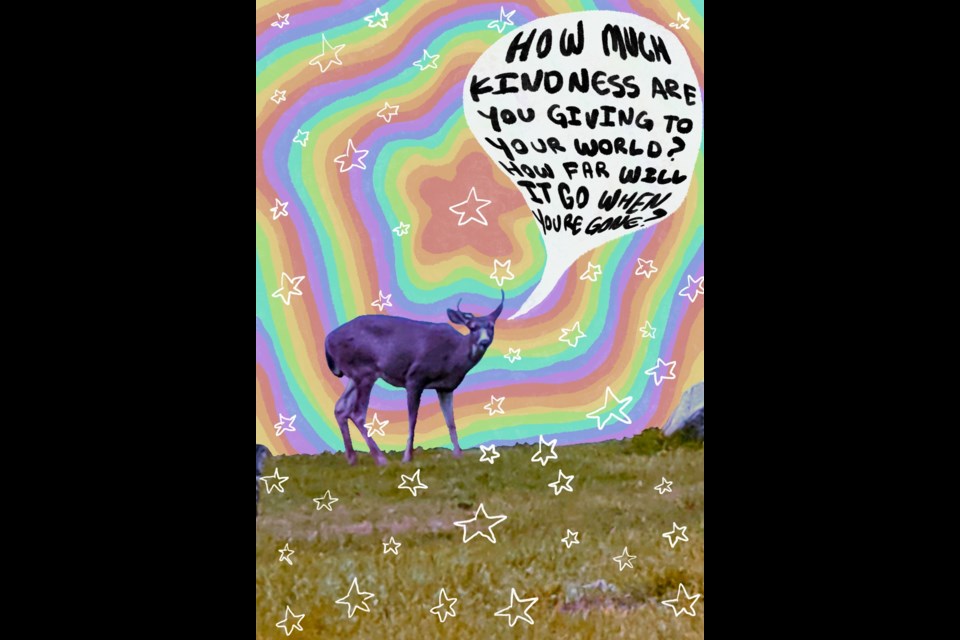The fight for climate justice is a personal one for the members of the LGBTQIA+ community.
Often excluded from important conversations, they have often had limited means to give voice to their stories, but many believe that through a new framework of inclusion and diversity, the queer community of environmentalists can provide a creative solution for climate justice.
New Westminster artist Juno Avila-Clark is a young non-binary artist who is exploring the intersection of trans art and climate justice through a workshop as part of the Arts Council of New Westminster residency program.
Clark, who goes by he/they pronouns, said that he has been a climate activist since he was in Grade 9. Seeing activists around the world talk about the climate emergency was a huge motivator for the artist to spring into action.
Taking part in the climate action strike in Vancouver back in April 2019 was just the beginning of his long fight.
"I won't get to experience that world in the body that I want to be experiencing it in," he said.
The sense of limited time led him to find that intersection of gender identity and the fight for climate justice through art.
Trans art and climate justice workshop
Clark was involved in a greenhouse project past September, which brought together artists of different backgrounds and identities to talk about how artists contribute to climate solutions, which prompted him to think about his personal connection to the larger story of climate.
"I went to the workshop led by a climate scientist really early in the morning at UBC, very tired with our coffees, and we just settled in," he said.
"She said, 'I want all of you to change seats with the person sitting next to you,' so we kind of grumbled and changed six seats. When we hated it, she explained why things are not moving as fast as we need to to combat combat the climate crisis.
"Because we're naturally resisting the changes needed; because we're comfortable in the status quo, but artists are able to make change enticing."
This was a driving force for Clark to fit in his personal story of being a trans person and see how changes that required discomfort can help make a positive impact.
Although it is different for each individual, he believes that the queer community as a collective has inherent knowledge about how uncomfortable changes can sometimes be positive and necessary. And through art, it can start important dialogue.
Clark created the workshop in order to encourage the trans, genderqueer and questioning folks to come together to explore creative solutions to climate justice.
"We have a lot of knowledge and experience," he said. "It is important to share that voice."
When: Sept. 17; 3 p.m. to 6 p.m.
Where: Gallery at Queens Park, New Westminster
Cost: Free
Registration: The workshop is open to trans and gender-questioning folks passionate about art and environment. Register by email.


